Have you guys ever heard about the term Domain Authority? We all are very familiar with SEO terms like Google PageRank, backlinks, On-Page and Off-Page SEO, etc. but I know some people are not aware about Domain Authority.
So let’s take a closer look at Domain Authority and talk about its advantages and disadvantages.
What is Domain Authority?
Domain Authority is a ranking method (from Moz), which is a bit like Google PageRank in that it gives an indication to how well your site will perform in the search engines. Domain Authority works on a predefined algorithm which scores your website out of 100 (the higher the better).
Even though domain Authority doesn’t actively play any role in ranking you higher in the search engines, it is a pretty good indicator that you can use to help improve your site.
Quick note: There is a myth going around the internet that Google uses Moz’s Domain Authority stats to build their own Page Rank. I asked about this during the Google gDays event that was held in India last year, of which the Engineers completely denied. They said “We have our own ranking algorithms and we record stats on our own. We don’t rely on the stats of Domain Authority algorithm“.
As I said Domain Authority gives you a score out of 100, which is based on your link counts, MozTrust and MozRank, as well as other stats such as backlinks, domain age and popularity. All these help to build the Domain Authority rank.
Moz has introduced two Algorithms one is Domain Authority (which we are discussing right now) and the other one is Page Authority that also ranks the web page based on several factors.
How Do I Find Out My Domain Authority?
There are a couple of ways to find out how your website is scoring for Domain Authority. You can either use the MozBar or Open Site Explorer (though they actually work well when used together).
MozBar
The MozBar is a toolbar that you can download for free for your browser (Chrome or Firefox) that will let you see important SEO statistics as your browse the web. This is great for seeing stats about the website that you are on, especially when you are looking for sites to link to or write for.
Here you will be able to quickly see a sites; Domain Authority (DA), Domain MozRank (DmR), Domain MozTrust (DmT), Page Authority (PA), MozRank (mR), MozTrust (mT), Subdomain info and number of links.
The MozBar also lets you see data in the search engines with their SERP overlay feature. This is great for quickly seeing which sites are quality sites when conducting searches. It may also give you an idea why sites may be ranking higher than you are in the SERPs.
Open Site Explorer
Open Site Explorer is a site that you can use to find out more information about a site. You can learn about a site’s; inbound links, top pages, linking domains, anchor text, as well as domain authority, page authority, etc. You can even compare sites against one another (up to 5 comparing sites) to size up the competition.
Open Site Explorer is free to use, though it will only give you a limited amount of data to work with. For unlimited access, you will need to sign up for MozPro.
Is Domain Authority Important?
Now, here’s the million dollar question! Is it really important in blogging and is it going to affect your performance in the search engines. Well, yes and no!
Domain Authority is NOT going to actively affect your blogs performance in search engines (as that is up to Google, Bing, Yahoo, etc.), BUT it gives a good indication of how you are performing. Therefore, Domain Authority should be used to help you to analyse your site’s condition and look at areas to improve upon.
How to Increase Domain Authority?
After the million dollar question comes the billion dollar question! How do you increase your site’s Domain Authority score? The answer is simple. As per my article, Domain Authority depends on the relevancy of your blog. The more relevant your blog is to the search engines, the better your Domain Authority score will be.
Here are some methods to help improve your Domain Authority score. Let’s take a look…
1. Guest Blogging
Links are a very important part of SEO, so it’s always good to work on getting more links to your pages. Guest blogging is one way of doing this as you can approach the sites that you want to write for.
As we are trying to improve your Domain Authority, you want to look for sites with a good score themselves. The higher their score is, the better it will look for your site when you get a link from them.
2. Try to Write Search Engine Friendly Content
Instead of writing any old content, look to write something that is search engine friendly. What I mean by this is that you have to look to optimize your pages and posts by including relevant keywords and keyphrases in the appropriate places. Research your keywords/phrases beforehand to try and find less competitive ones that you can use to help you rank well.
Try to focus on On-Page SEO aspects, such as; H1, H2, H3 tags, meta descriptions, image alt tags, etc. so that you rank better in the search engines.
3. Use Other Search Engines Policies
Do not solely rely on Google to send you traffic. I may have talked a lot about Google in this post (as it is #1), but that doesn’t mean you should neglect the other big search engines like Bing and Yahoo. They can send you plenty of traffic themselves, so it pays to pay them some attention as well.
Check out our guide to submitting your site to Bing and Yahoo.
4. Produce High Quality Content
Finally I will say that still the best way to improve any site is to produce high quality content. People want to read good content and are much more likely to share it across their social network, search engines prefer quality content and will rank them higher in the SERPs, which is why it is always important to produce it.
It may sound like a simple idea, and it is, but that is what people are after. If you want to build a good site, you need good content. Of course producing the content is much more difficult, but with a bit of hard work it can be done.
So, What’s Your Domain Authority?
So to finish up, I would like to say that Domain Authority is simply a ranking method that indicates how search engines are considering your blog. Domain Authority is not going to actively help in ranking well in search engines, but it will definitely help you look at way to rank higher.
What you think about Domain Authority? Do you take it into consideration when looking at sites? What’s your site’s score? Please leave your responses in the comment section below.
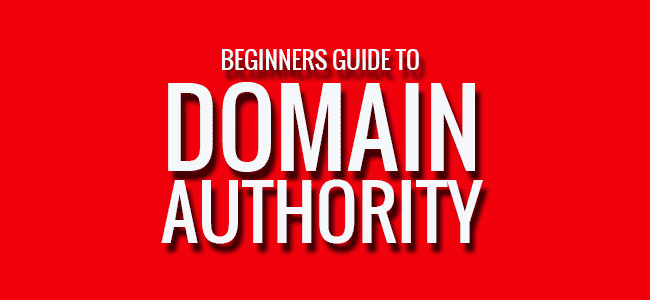
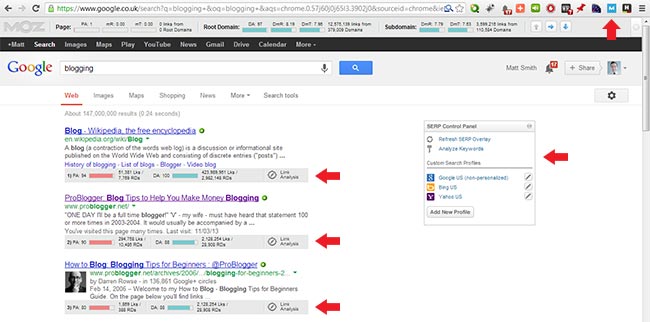
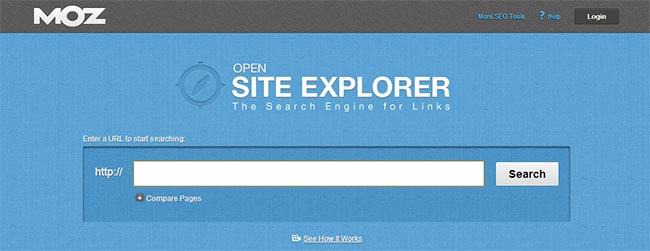
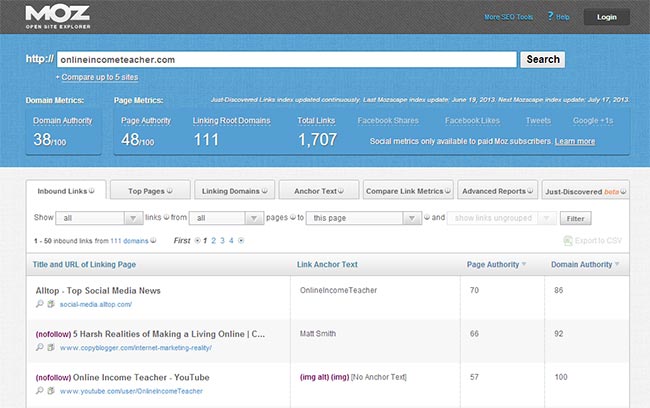
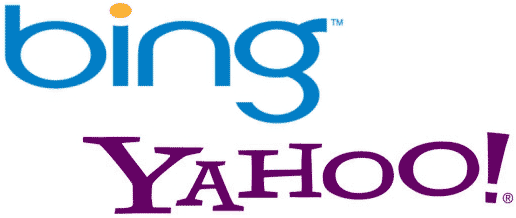

CommentLuv vs Disqus – Why I Don’t Use CommentLuv!